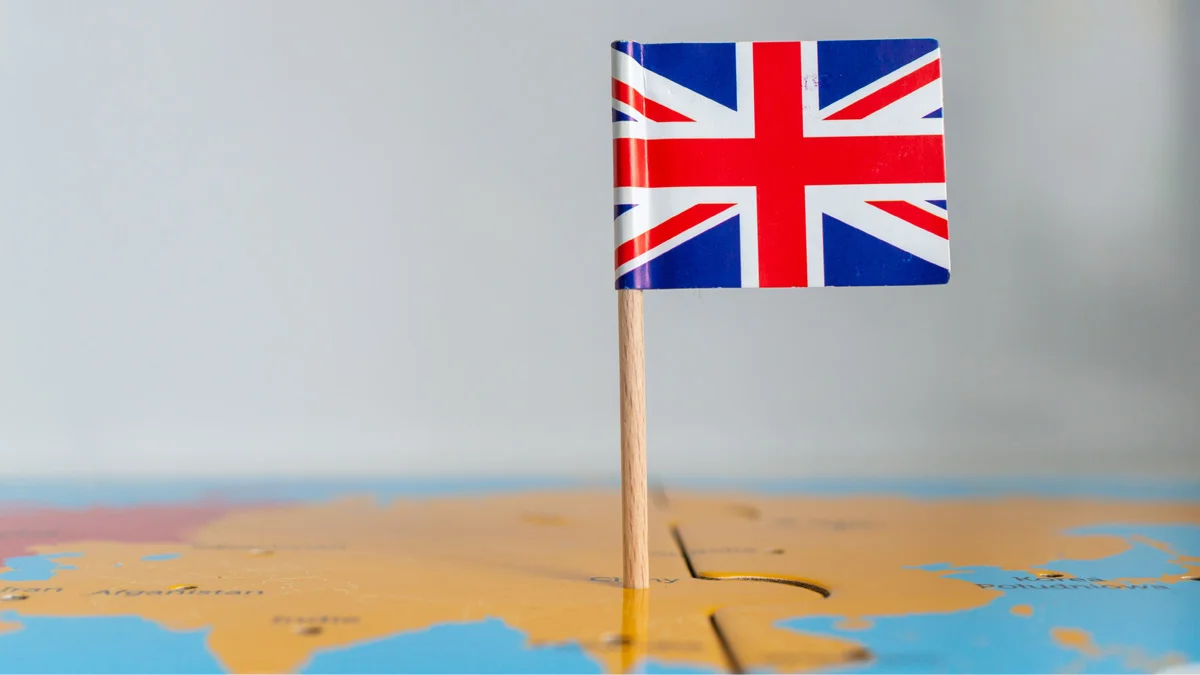
This article is an online version of our Off to Lunch newsletter. Sign up to receive it straight to your inbox here.
The Labour party has revealed its manifesto in Greater Manchester this morning. We’ll be diving into the policies that the major parties have for business in tomorrow’s newsletter, but today we’re going to focus on our recent podcast guest.
Lord Mark Price began his career at the John Lewis partnership as a graduate trainee in 1982. It was the start of what would be a 34-year stint, culminating in him becoming the MD of Waitrose in 2007. During his nine-year tenure, he would guide the business through the financial crisis and double its size.
One of the things he is most proud of is radically reducing staff turnover from roughly 70 per cent to around 20 per cent. This inspired his latest venture, a digital HR platform called WorkL.
In 2010, Price was invited by then-prime minister David Cameron to sit on a committee that was looking to use happiness as a measure of GDP. The announcement of the committee was heavily politicised, with the trade union Unite attacking the plan as "another attempt by the coalition to pull the wool over peoples' eyes".
But Price says that Cameron was onto something. WorkL collects data from millions of workers in 106 countries across the globe and has found an important pattern:
The happiness scores for the UK align precisely with where we are for productivity. And that is the same for every other country we measure. People who are happier at their work perform better, work harder, give more and outperform their competitors.
Price, who recently stepped down as president of the Chartered Management Institute, highlights research by the organisation which found that over 80 per cent of managers in the UK have no training in management. He believes that at the heart of our productivity issue is the fact that in the UK we are not as good at managing and motivating people as elsewhere.
Recognition is a great example. In the UK, on average, people are recognised and thanked for doing a good job once every two and a half months. However, people get critical feedback twice a week. If you go to America, it's exactly the reverse. I think the way that we manage people and the metrics we use to measure them becomes crucial.

When Price stepped down as the boss of Waitrose, it brought to an end a stellar career at the John Lewis Partnership. He became the UK trade minister in April 2016, just two months before the UK voted to leave the EU.
Being charged with agreeing trade deals post-Brexit and his current position in the House of Lords has given him a unique insight into the export trends of UK businesses. He says they may be missing a real opportunity for growth:
Our small companies are pretty good at exporting. Our very large companies are very good at exporting. But our medium-sized companies aren't. There was research done when I was at the Department for International Trade that showed that medium-sized businesses don't necessarily want to take the risk on exporting.
Also, VC-backed mid-sized businesses tend to get sold and turned around more quickly than they do in Europe. Therefore, there's less chance for them to scale to become big businesses. There's something structurally different in the UK, which is really missing a trick.
Price also gives his thoughts on the current state of the John Partnership which is well worth a listen. You can listen to the full episode below, or Spotify and Apple Podcasts.
Business Question
How many people have a side hustle in the UK?
A: 5 per cent
B: 15 per cent
C: 25 per cent
D: 55 per cent
The answer can be found at the bottom of the page.
Business in Brief
Everything you need to know
1. The Labour party has revealed its manifesto. The party remains a clear favourite to form the next government with opinion polls expecting it to be the biggest majority in 100 years. You can read more here.
2. Confidence in the UK’s housing market is starting to dip, despite an improving outlook in recent months, according to the Royal Institution of Chartered Surveyors. Read more here.
3. The US central bank has held interest rates at 5.3 per cent. The closely watched figure is projected to only be cut once this year, with its chairman Jerome Powell saying inflation “has eased substantially” but is “still too high”. More details here.
4. Tesla boss Elon Musk says shareholder votes on a record-breaking payout to the multi-billionaire and a plan to move the firm's legal headquarters to Texas are "currently passing by wide margins". The payday would be worth $56bn (£43.8bn), the highest ever in corporate America. You can read more here.
5. Guinness has signed up to be the official beer of the Premier League. The Diageo-owned brand will take over from Budweiser after fighting off competition from Heineken in a deal worth more than £40m. You can read more here.
Business Quotes
Inspiration from leaders
"If you want to go fast, go alone. If you want to go far, go together."
- African Proverb
Business Thinker
Ideas on the future of business and leadership
1. Your board is your best insurance against turbulence
2. Quiet quitters fuel UK economy’s £257bn productivity crisis
3. Nvidia CEO Jensen Huang has a no one-on-one meetings rule for his 55 direct reports
And finally...
We've all been around difficult employees. People who question everything, are fiercely stubborn, often controversial and drive people hard. These types of people are often referred to as "divas". But Google's former CEO Eric Schmidt says that you should learn to embrace these types of characters.
If you read any management textbook, it says don’t hire the divas because they’re nothing but a pain in the ass. And by the way, they are. But the people who are the divas – who believe – are the ones who will drive the culture and company to excellence. Steve Jobs was a diva.
X account @StartupArchive_ points out that in his book, How Google Works, he's quick to note that you shouldn't tolerate arrogant people at your company. He uses the terms “divas” and “knaves” to distinguish between who you should tolerate and who you shouldn’t.
“Knavish behaviour is a product of low integrity; diva-ish behaviour is one of high exceptionalism. Knaves prioritise the individual over the team; divas think they are better than the team but want success equally for both. Knaves need to be dealt with as quickly as possible. But as long as their contributions match their outlandish egos, divas should be tolerated and even protected.
"Great people are often unusual and difficult, and some of those quirks can be quite off-putting. Since culture is about social norms and divas refuse to be normal, cultural factors can conspire to sweep out the divas along with the knaves.
"As long as people can figure out any way to work with the divas, and the divas’ achievements outweigh the collateral damage caused by their diva ways, you should fight for them. They will pay off your investment by doing interesting things.”
You can watch the clip of Eric Schmidt talking about this &utm_campaign=Off%20to%20Lunch&utm_source=hs_email&utm_medium=email&_hsenc=p2ANqtz--CDr1Q_ldngogTNEBzzV7tvwZAR3LyhietZOonU3rnlNKJiiKosicjyTmGZETD7kYJeDYo" rel="noreferrer noopener" target="_blank">here or the full lecture &utm_campaign=Off%20to%20Lunch&utm_source=hs_email&utm_medium=email&_hsenc=p2ANqtz--CDr1Q_ldngogTNEBzzV7tvwZAR3LyhietZOonU3rnlNKJiiKosicjyTmGZETD7kYJeDYo" rel="noreferrer noopener" target="_blank">here.
The answer to today's Business Question is C: 25 per cent
Related and recommended
Richard Harpin, the founder of HomeServe and Growth Partner and owner of Business Leader, answers your burning business questions
Contestants from The Apprentice reveal the fundamental business lessons they learned from taking part in the TV show
From global talent pools to AI-powered documentation, a work-from-anywhere model is a new way of thinking about productivity, innovation and teamwork
The story of how cycling brought Business Leader member John Readman together with his co-founder and investors




